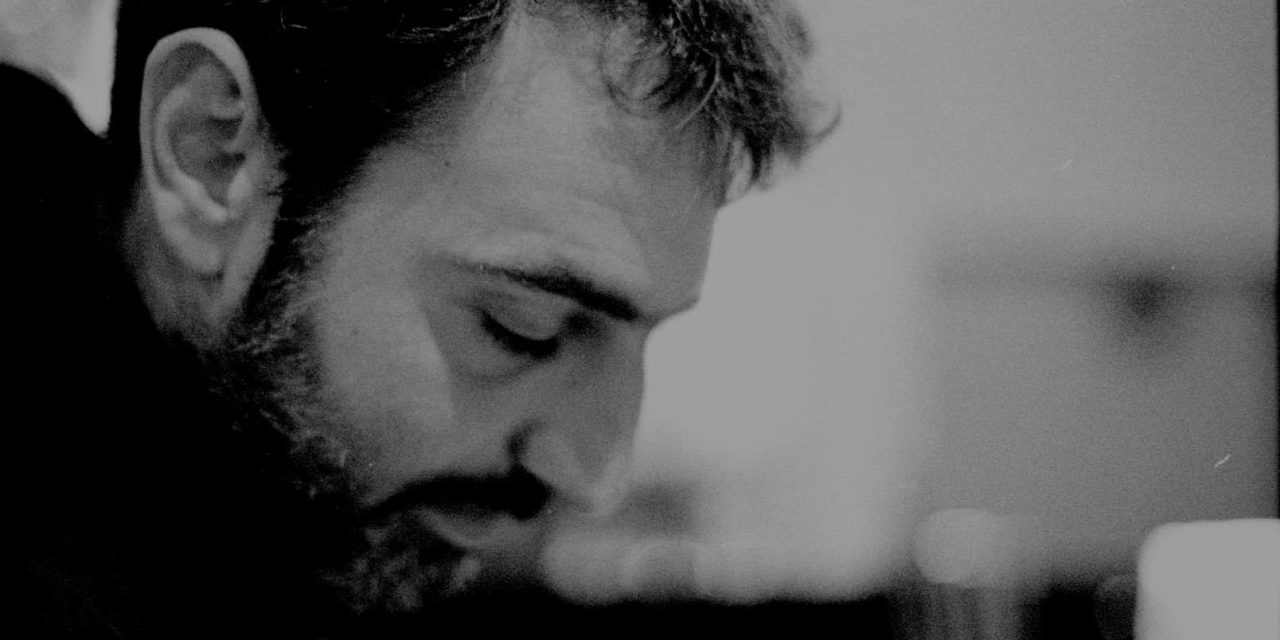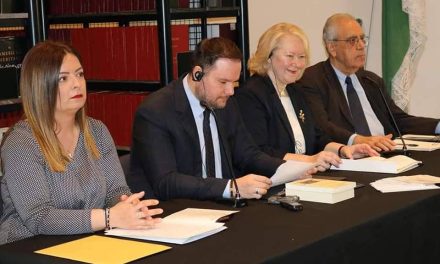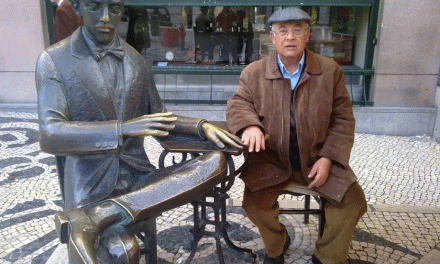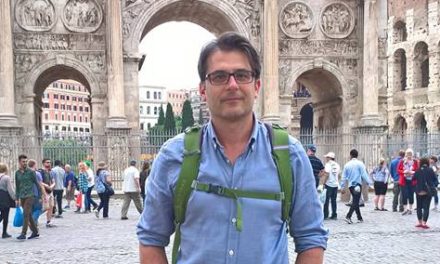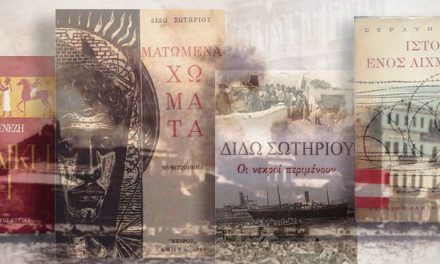Christos Martinis (1985) was born in Athens and lives in Thessaloniki. He has published the following books: foreign light (Ypokeimeno, 2017), Eliofor Festus. A modern Greek poem (Ypokeimeno, 2019) and Fuck the Future, Six poems and a selfie (2022, Private Edition). He is part of the editorial team of the literary magazine Βόρεια-Βορειοανατολικά.
Your second poetry collection is titled Εliofor Festus and subheaded A modern Greek poem. What is the story behind this writing venture of yours?
Eliofor Festus is my second poetry collection following το ξένο φως (foreign light) (2017). It was published in 2019 by Ypokeimeno. The book came up from notes and scraps I kept from 2016 to 2018, while I was living and working in Lesvos. Eliofor Festus is closely related to my experience of the island. It focuses on a distorted modern Greek world and, contrary to its title, it refers not to the Other, the xenos, but to myself. To the person I thought I was when I started writing it and to who I really was. To the way I dealt with what I experienced and how it changed me. It’s this personal experience I tried to turn into poetry. As for the subtitle, it is a reference to Bolivar – A Greek poem by Nikos Engonopoulos. I prefer not to go into more detail about when and how it was written. The book carries enough horror on its own. I don’t need to enrich it with more biographical material.
“In the world of Eliofor Festus, life ceases to have the meaning it deserves. And that for the poet is the worst thing to lose, one’s human side. This cry, this fear, runs throughout the book”, in the words of Panos Papapanagiotou.How does poetry relate to the world it inhabits? Could poetry be used to imagine what could be radically different realities?
I try my verses to be rooted in the reality to which they refer. In other words, I am not interested in simply composing “beautiful” poetic thoughts. Eliofor, for example, is not just a poem for me. It is at the same time what the first verse declares. A flat report of what happened during that period. I can place every verse at a specific moment. This happened here, the other there. I turned it into poetry because this is my way of freezing reality, examining it through unexpected prisms. It is also my way of making a statement, of taking a stand. For me, poetry is not a means to invent other realities. It is a way of imagining yourself differently within this reality.

Experimentation with language seems to be central in your poetic writings. What role does language play in your work?
I choose the words in my verses on the basis of clarity. That is, I want them to be lucid. I prefer words that don’t need a second reading. I want my verses to directly form an image without causing any confusion. That’s why I try to use language in a way that feels direct. Familiar. When I go over my poems, what I have in mind is that they run smooth. That the verse rolls, even if it’s at the detriment of complexity or a rich vocabulary. In any case, I want my poems to be written with the vocabulary of my everyday life since that’s what I believe I am writing about. And this is the vocabulary of a man who grew up in Athens, studied and lives in Thessaloniki since the age of 18, comes from villages in Macedonia and Arcadia, and is the ‘product’ of a specific social class at a specific historical moment.
“Poetry is what motivates me in the present”, “poetry is the sudden change of perspective, the surprise, the matching of sound and content”. Tell us more.
Taking the expression “poetry is what motivates me in the present” out of its specific context, I cringe at its generality. This sentence was part of an answer to the question “what does poetry mean to you?” I replied then that this changes every time. Τhe poetry that moves me now is quite different from the one that moved me in the past; then, for me poetry was Sylvia Plath,Greek rapper ΔΠΘ, Anna Akhmatova, Pantelis Pantelidis, Alexis Traianos, and Greek composer/lyricist Akis Panou. Today, it’s Gerasimos Lykiardopoulos, Theodoros Basiakos, Napoleon Lapathiotis, Kedrick Lamar, Aris Alexandrou and Greek punk rock band Strafi. I don’t know about tomorrow. It depends on my readings, on the path that my plans lead me to. Every reading leads to the next. And this is how poetry motivates me in my present.
As for the “sudden change of perspective”, I insist. Surprise is an essential ingredient of poetry. The same world seen differently through a single verse. Suddenly, with no warning whatsoever. The moon in Moonlight Sonata by Yannis Ritsos is a case in point: the moon’s a hole in the skull of the world. Thus, it is the surprise, the change of perspective, that we are after. This is our anxiety, not to sink into apathy, to cope with these times and find verses to talk about the everyday in a way that will help our friends and fellow travelers; and that will bring us closer to them.
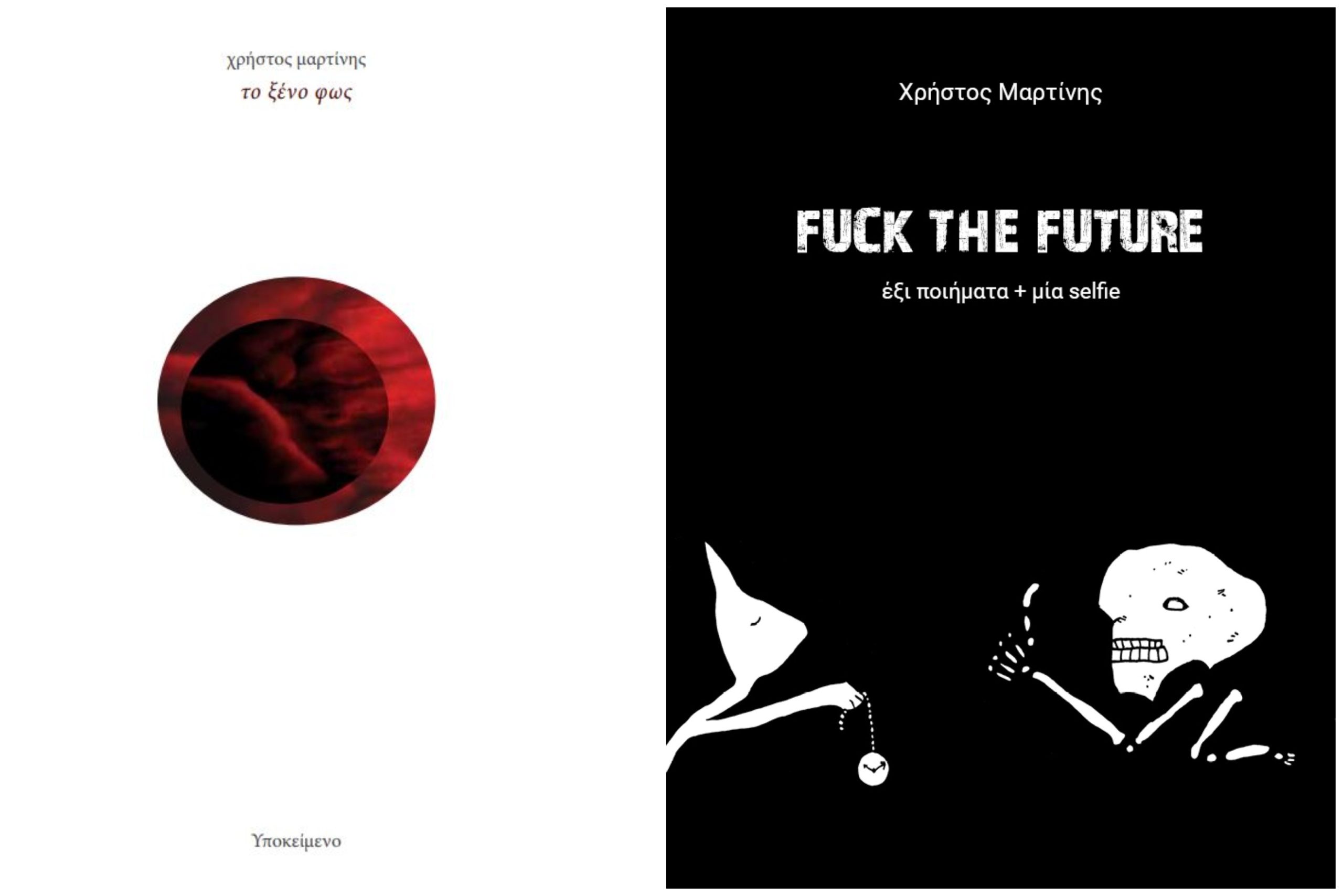
For the majority of Greek writers, writing is not a main profession but rather a leisure time activity. In other words, earning a living through writing is the exception rather than the rule. Could things be otherwise?
Indeed, today poetry comes after livelihood. I have the impression that in this country it has always been like that with only a few exceptions, hasn’t it? In any case I’m so deep in this way of writing that if you took away the agony of making a living, you would probably also take away my ability to write poetry. That’s me, of course, who have learned to work with ‘carrot and stick’. This doesn’t necessarily mean that I don’t dream of a livelihood closer to poetry, and if this isn’t feasible, even a livelihood that allows me to write poetry. Α wage is always a wage, no matter how large or small. And poetry doesn’t pay a living wage.
I don’t want to confuse the discussion about livelihood with the discussion about the claims of the people who write, about the need to gather together, the need to respect their work as well as the work of others. Let the discussion of livelihoods not be confused with the need to withdraw from established competitive processes that turn projects into racehorses and let them run.A dear friend once told me that “literature is an ocean, everyone contributes to this ocean, some with a drop, others with a bucket. In the end, literature remains one”. Writers must make their way as fellow travelers and not as racehorses. Making a living is a problem that concerns us all and we should all solve it together every day by supporting each other, each in his/her own way.
Βeing part of the editorial team of the literary magazine Βόρεια-Βορειοανατολικά [Nord/Nord-East], tell us a few things about this collective venture of yours. What is to be expected from the magazine in the near future?
The editorial team of Bόρεια-Βορειοανατολικά has already six issues behind it. The first dedicated to 20th century realisms, the second to modern Greek poetry, the third to modern folk art, the fourth to the literature of Lesvos, the fifth to the concept of place and displacement and the sixth to the relationship between history and literature. The seventh issue that is underway is dedicated to the generation of 20s and will be published this winter. The editorial team consists of Zisis Ainalis, Alexandros Karavas, Panagiotis Koskinas, Giannis Mamakos, Giannis Pattakos, Eleni Roussopoulou and me.
We are a group of writers and visual artists who met in Lesbos in 2017 and continue to publish the magazine collectively since then. In our meetings we decide the content, discuss the next, resolve our disagreements. Setting up a magazine has been and still is a new school. If Eliofor Festus contains all the things I wanted to leave behind when I left Lesvos, Βόρεια-Βορειοανατολικά comprises all the precious things I took with me.
*Interview by Athina Rossoglou
*INTRO IMAGE: @Marouso Athanasiou
TAGS: LITERATURE & BOOKS | READING GREECE

